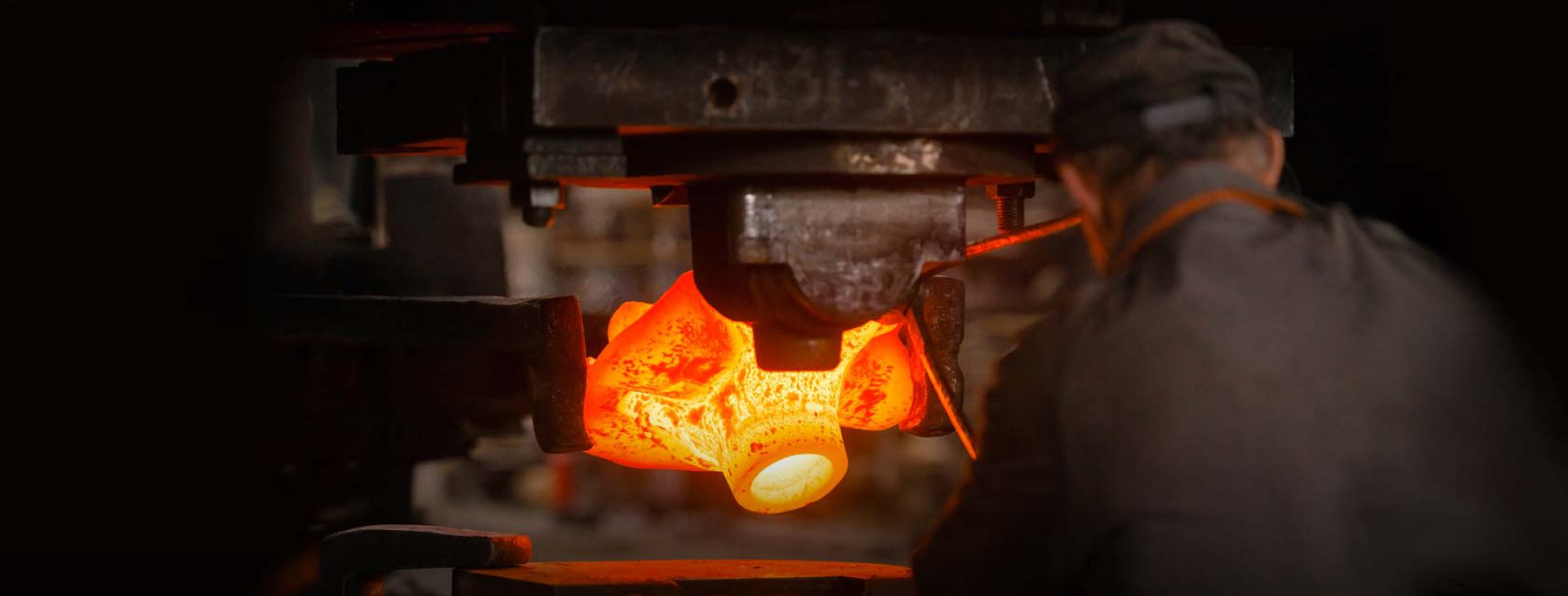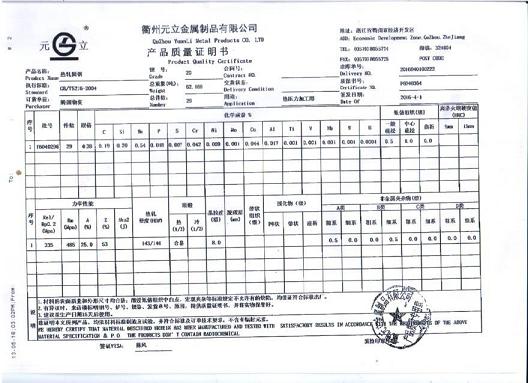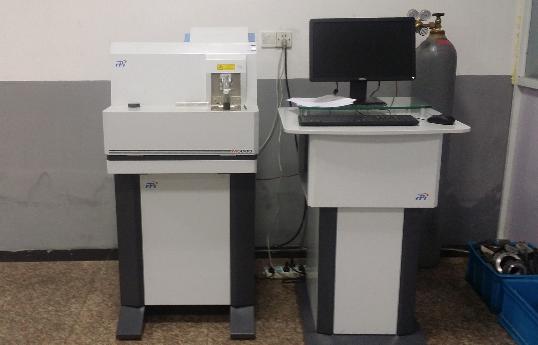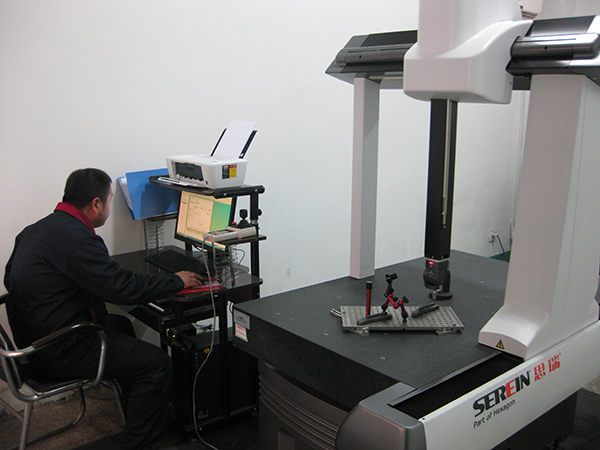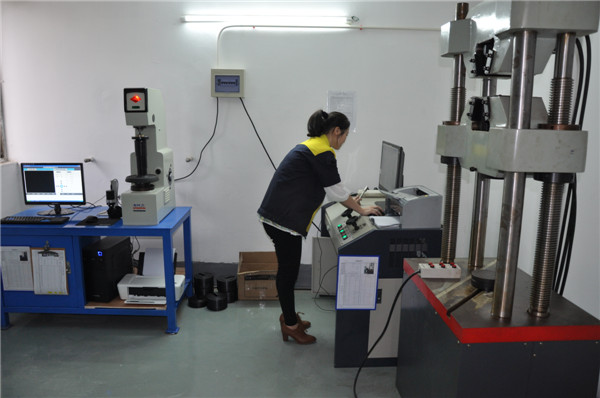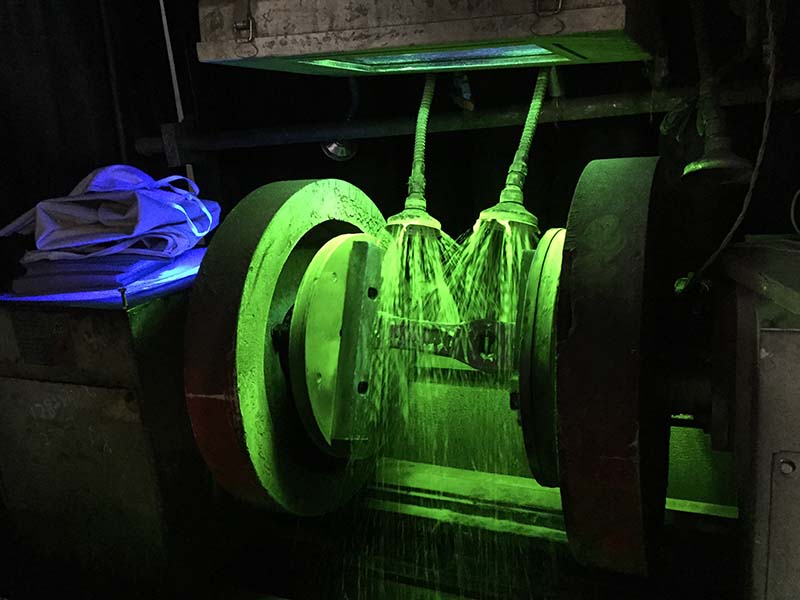Each time our customers visit our company for first cooperation, after reviewing our production equipments, another attention is how we would do quality control, which will give them much confidence to place us orders. Usually, we would do inspection for a new steel forging parts in sides of inspections like material, dimensions, mechanical properties and defects inspections.
Material Inspection:
- Ordering material is the first step to make steel forgings, and to ensure the material is what we need, we will require material certificate from material factory.
- Only material certificate in not enough, after the materials are delivered to our factory,our technical person will also cut a small piece to test the chemical composition by spectrum analyzer, and check if each tested composition is within the range of elements.
- Besides, after forging, we will also inspect the forging blanks to see if the material composition will change.
Dimentional Inspection:
Dimentional inspection is the most important job for custom steel forgings. Any dimension and tolerance error may cause the product unusable. To guarantee the final assembly, the dimensions and tolerances of steel forgings should be as accurate as possible. So our quality inspector will be in charge of dimentional inspection after products are finished.
- One way is to testing instruments, such as callipers, depth gage, dial indicator, inside micrometers, height gauge, ect. These will be done by hand operation. For more accurate dimensions, CMM can be used. But only few companies have this instrument for the high price.
- As the usage of all these custom steel forgings will be assembled into the machines, so sometimes, it is difficult to inspect some dimensions, to ensure the products can be applied when our customers receive them, we will make a guage/fitting to test if there is any assembling problem.
Mechanical Properties Inspection
For some special usage or application, there will be some mechanical properties requirements (such as hardness, tensile strength, ect) of the products. According to the needed properties, we will perform heat treatment service after closed die forging. And confirm the expected properties, mechanical testing will be operated to prove the quality of steel forgings. Below are some common inspections about the mechanical properties:
- Hardness Testing-Is tested when there is a hardness requirement on steel forgings. The hardness will be tested by brinell or rockwell hardness tester.
- Tensile Testing-A destructive test process that provides ultimate tensile strength, yield strength, elongation and reduction area rate of the products.
Defects Inspection:
Although the strength of steel forgings are much better than steel forgings, it may also exsit defects, we can distinguish the defects into surface defects and inner defects.
For surface defects such as trimming, cold shut, dents, ects, are mainly tested by 100% visual inspection or MPI(Magnetic particle inspection). But MPI cost is high, which is done when it is requested by our customer, of course, customers will be in charge of the cost.
Inner inspection is needed especially when steel forgings are used in safety and strength considerations. Inner inspection of steel forgings include:
- NDT(Non Destructive Testing): X-ray, UT(ultrasonic testing), ect. This is the most direct way to test the inner defects of products.
- Section test: Another direct way to see if there is inner defect inside the products is to do section test, and inspect the defects by visual.In this way the products will be broken, and could not be used any longer.
- As the usage of all these custom steel forgings will be assembled into the machines,so sometimes, it is difficult to inspect some dimensions, to ensure the products can be applied when our customers receive them, we will make a guage/fitting to test if there is any assembling problem.

